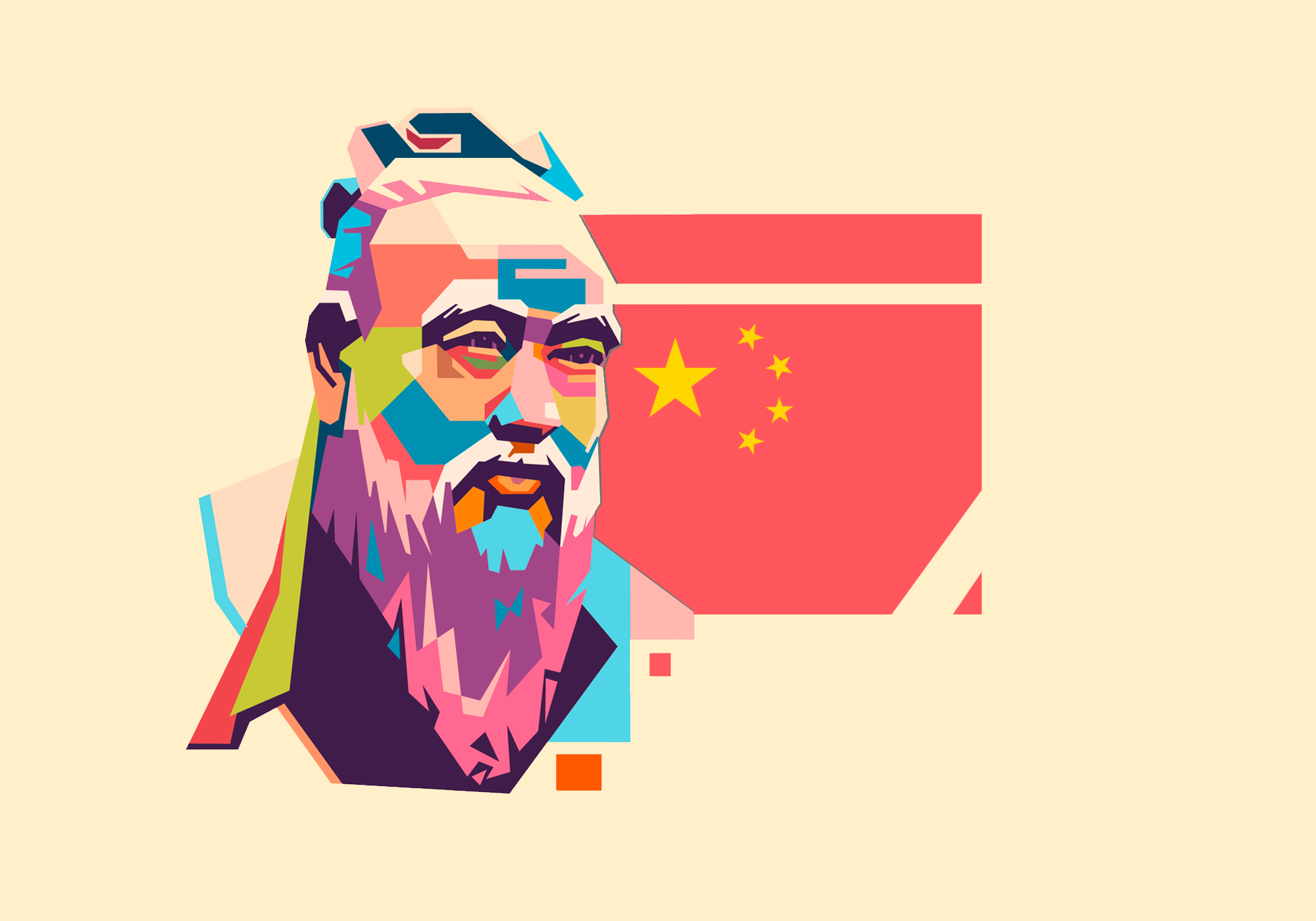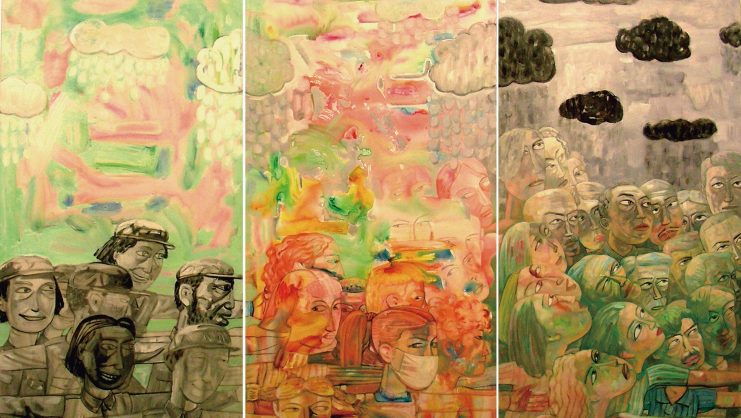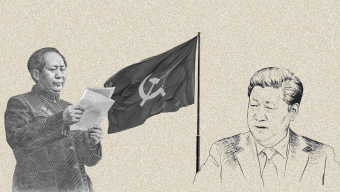In a 1993 article in the Harvard Business Review, entrepreneur John Kao noted that, in his day when economists talked about the great economic centers of the world, they placed them in North America, Europe and Japan. He added that when economists discussed East Asia, they usually divided the region into three large economic areas that included Japan, the People’s Republic of China, and the “Four Little Dragons”— South Korea, Taiwan, Hong Kong, and Singapore. In his article, Kao challenged this neat compartmentalization of East Asia’s economic centers, arguing that most Chinese companies at the time were located outside the geographical area of the People’s Republic of China, and scattered all over the world. Kao pointed out that among these companies, there was an underlying connection based on a common Confucian tradition and culture. And he added that if one were to measure the underlying cultural link connecting Chinese companies outside the People’s Republic of China in economic terms, it would amount to the world’s fourth-largest economic power.
Much has changed since that article was first published—China’s economic development and increased capital investment have enabled the country to emerge as the world’s second-largest economic power with a burgeoning middle class. Among the companies that have enabled this to happen are investors from the well-known Bamboo Network, which connects Chinese companies in Southeast Asia, as well as those in the so-called Greater China area, including Taiwan, Hong Kong, Macau, and Singapore, as well as the People’s Republic. Much has also been written about how the ethnic tradition that unites all these Chinese companies is based on values that are conventionally accepted as uniquely Confucian and that affect the behavior and structure of the companies that are part of this network.
Most of the research done in the 1980s and 1990s focused on Chinese companies outside the People’s Republic, and many of these studies compared the significance of interpersonal relations within East Asian companies with the individualism of American companies. There continues to be an unspoken tendency (at least I read it that way) to understand that this connecting thread formed by different companies in different parts of the world is also at work, tying these companies to the People’s Republic. But the changes of the last century, or at least since 1949, have to be taken into account, especially with regard to the traditional Confucian values so closely related to the family structure in China. Beginning with the so-called May Fourth Movement of the early part of the 20th century, many of the traditional ideas that held family structures together, such as the total authority of the parents in the marital decisions of their children, began to be rejected.
During the Cultural Revolution, the student-led campaign against the Four Olds (old thought, old culture, old habits, and old customs) attacked and denigrated many of these Confucian values. Some of these values never fully regained their status, including, for example, women’s obedience to their husbands.
The Maoist period changed the fabric of Chinese society to a point where one needs to question whether these Confucian values, which Kao considered to be the common denominator on which the power of the Confucian tradition is based, and which have developed in more or less democratic countries, are the same values that emerged from the Maoist era. For example, are these Confucian values the same in the People’s Republic as in Taiwan and Hong Kong, where the transition from a traditional to a modern society has been culturally and socially more organic? Are the Confucian values held in the People’s Republic the same as those of families who migrated to other cultures, such as the United States or Southeast Asian countries, and who did not live through the multiple political campaigns that shook the PRC? These are important questions, because from the end of the Maoist era to the present day, socio-political and economic change has affected Chinese values considerably, many of them in direct opposition to the one thing Kao claimed all these companies have in common: a Confucian understanding of the family structure and its values.
The Confucian ethics that have kept the family conscious of its responsibilities have changed into something that has yet to be defined.
Confucianism as applied to family business is largely based on a conception of social and interpersonal relationships, and an understanding of a values system that influences people’s behavior. The aspects of Confucianism that are most often mentioned within this worldview system are li (often translated as propriety), which refers to the rules of decorum within society and familial organization, and ren (humanity), which is one of the five virtues that define social relationships. Human relations are based on the so-called Five Human Relationships as established between father and son, sovereign and minister, husband and wife, older and younger brother, and friends. The maintenance of these correct relationships demands that the obedience of the son towards the father; the loyalty and duty of the minister to his sovereign; the submission and obligations of the wife to her husband, as well as the role of the older brother as model to the younger, and the trust between friends be upheld. While Confucius regarded these relationships as the model by which social and political order should be preserved, the first two between father and son and sovereign and minister were of primordial importance. These relationships entail reciprocity, but also the notion that control by the individual of their own personal desires and emotions will work towards the common good and preserve harmony within the family.
The objectives and the theories that back them up are not always applicable in practice. For example, in modern times, given the social changes that have already taken place in the People’s Republic of China, the relationship between husband and wife is viewed with suspicion. But the relationship between father and son, and sovereign and minister, based on obeisance in the first case and loyalty and duty in the second, are at the heart of the “paternalistic” ideal of the Chinese company. This is why it is important to understand how these ideals may have changed since, at least, the establishment of the People’s Republic. During the Cultural Revolution, many family relationships were destroyed. Sometimes the rift erupted between children and parents. For example, if a parent was too strict with their children, a child could denounce the parents as “rightist.” Sometimes the division was between spouses. For example, if one of the spouses came from a family with a “bad class” background (i.e. they were originally landowners or intellectuals), they would divorce to protect the rest of the family. And other times family tensions simply grew from the stress of the existing social chaos. This same revolution during the 1960s and 1970s displaced millions of young (and not so young) people considered privileged by sending them from the cities to the countryside to “learn from the peasants” and thus breaking families apart.
In the 1980s and 1990s, during the Deng Xiaoping era, family planning policies also contributed to dramatic changes in families (the one-child policy), and the development and liberalization of the economy exposed the economic (price per square meter) and social (lack of space in houses) difficulties required to support large families. The redefinition of family and marriage laws adopted at the beginning of this century also influenced the family structure. While most of these changes affected the urban population, the millions of young men and women migrating from the countryside to the cities forced to leave their children in the care of their grandparents is another factor that has contributed to reshaping the Chinese family. The causes are innumerable and the literature vast, and unfortunately there is no space in this short article to expand on this very complex subject. But, what I would like to point out is the persistence of the notion that the common thread that unites Chinese business culture throughout the world is based on a number of Confucian values attached to an essentially unchanging familial structure championed by Confucius as a model for the social and political world. Changes that have occurred in the last century, whether social, political, legal or economic, have greatly influenced the makeup of the nuclear family and should make one suspicious of these claims. The Confucian ethics that have kept the family conscious of its responsibilities have changed into something that has yet to be defined. There are innumerable signs that this is happening—from the campaign by the Singapore government to promote and reinforce filial values and help the government cope with the increasing neglect of elders in the family, to the newest policies in China to reverse the declining birth rates. I think we can infer with a certain degree of confidence that Confucian family values are continuously being redefined, and are subject to change according to what milieu nurtures them.
For example, how are we to understand families composed of individuals who are the product of the one-child policy and so have no uncles, cousins, or siblings? What values persist and what values are discarded by migrant Chinese families in other parts of the world? Much of the rhetoric still used to discuss the unique values of the Chinese (familial) business model reverberates with those studies, like Kao’s, carried out in the 1980s and 1990s (and earlier ones in Japan after World War II). And yet, while we are dealing with a very different society, with a different structure and different aspirations, we still hear these same arguments repeated without much thought or depth: “If you do not understand Confucian philosophy on the construction of [the Chinese] organizational system, you have no chance [of achieving] sustainable [returns] when your company grows to a certain size.” Or “Without the philosophy of Buddhism, you cannot do well when your business grows to a certain extent.” What Buddhism has to do with business is anyone’s guess.
In other words, the insistence on the uniqueness of the Chinese business model based on the uniqueness of a Chinese Confucian (and now also, Daoist and Buddhist) value system seems to be a grandiloquent and artificial claim intended to define, differentiate, and separate models of doing business that have been mixing and matching for too long. It has become a manner of speech, a hollow cultural convention, albeit an enduring one.
© IE Insights.








